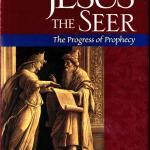Today’s guest post comes from Dr. Scott N. Callaham.
Week after week, I marvel at a blessing that has fallen to me. I get to teach the most eminently practical of the practical ministry courses in the seminary curriculum. What’s more, I get to teach it internationally, cross-culturally, and through a second language! Of course, this most practical of subjects is Biblical Hebrew.
That’s right. Hebrew.
 Learning the original languages of the Bible is one of the most prized aspects of theological education. As good as modern Bible translations are, they cannot help but smooth out Scripture’s distinctive contours and muffle its beautiful voice. That’s just what happens in the process of translating from one language to another.
Learning the original languages of the Bible is one of the most prized aspects of theological education. As good as modern Bible translations are, they cannot help but smooth out Scripture’s distinctive contours and muffle its beautiful voice. That’s just what happens in the process of translating from one language to another.
Open Doors for Biblical Languages
On The Gospel Coalition website, Ryan Martin recently posted a welcome encouragement to study the biblical languages. His logic is simple and compelling. He also takes his thinking further than most, for he dares to call for throwing open the doors of access to the original language text of Scripture to everyone, not just pastors. After all, there is no place in biblical ecclesiology for a priesthood of those initiated into secret mysteries (such as biblical languages) withheld from everyone else. Why shouldn’t every person who has the time and gifting to learn these languages do so?
I not only heartily endorse Martin’s thinking but wish to advance it yet another step. Specifically, I want Martin’s advocacy of biblical language learning to reach beyond the North American church and its predominant sociocultural setting, all the way to the ends of the earth.
As those who go to the ends of the earth, missionaries are typically very concerned about the planting and growing of healthy churches. For churches to take root and grow in the long term, national leaders must take charge. Therefore, the theological training of new church leaders is an essential and urgent part of Great Commission obedience.
Training church leaders is a discipleship process, so it takes time—lots of time. Any task that requires dedicated time and effort tests the patience of Western missionaries, prompting an inevitable question: Which elements of equipping for church leadership are most essential, and which are merely “nice to have”?
Right ordering of priorities is always welcome, but what ranks priorities in order on the mission field? I’m afraid that all too often, pragmatism reigns. That is to say, whatever generates the quickest “results” in exchange for the least personal investment is best. Wherever pragmatism is paramount, ironically the most practical of all kinds of pastoral training—training to interpret the Bible in its original languages and to proclaim its message faithfully in the modern context—falls out of favor.
As the pragmatic line of thinking goes, Hebrew exegesis and Greek exegesis are too hard. They’re too time-consuming. It’s better for national pastors to receive coaching from missionaries in leadership, vision casting, and how to share the gospel.
When Pragmatism Becomes Paternalism
This conception of discipleship on the mission field is widely at odds with Scripture for many reasons, but for now, let’s just focus upon one of its weak points. Simply put, this pragmatism-driven approach to cross-cultural international missions keeps biblical interpretation—especially the interpretation of Scripture on its own terms—out of the hands of nationals.
The implicit message is that biblical interpretation is a task best reserved for a “priesthood” of initiated experts, the majority of whom are white North Americans. As these “experts” export their authoritative-sounding theological opinions to the rest of the world, they implicitly discourage non-specialist, non-North Americans from turning to the Bible as the authoritative and sufficient word of God.
This way of thinking has a name: paternalism.
Instead, why shouldn’t the Western missionary treat the national Christian as a true equal in the body of Christ, in which “there is not Greek and Jew, circumcised and uncircumcised, barbarian, Scythian, slave, free; but Christ is all, and in all”? (Col 3:11 ESV) Specifically, who is to say that the national Christian should not receive the same depth of theological training as the Western missionary?
For that matter, what is wrong with their gaining an even surer footing in Scripture and theology than the Western missionary? If we Westerners have done such an abjectly poor job of reaching our own culture that we need the “mission fields” to send missionaries to our own shores, shouldn’t we rejoice in God’s provision for his church and not stand in the way?
Hebrew and Greek—and let’s not forget, Aramaic—aren’t just for pastors, and they certainly aren’t just for white people. Let’s equip expositors of every ransomed tribe and language and people and nation so that the whole earth and all of heaven will resound with praise to the Lamb who was slain for us! (Rev 5:9-12)
Dr. Scott N. Callaham is a Lecturer in Hebrew and Old Testament at Baptist Theological Seminary, Singapore. He is the author of Modality and the Biblical Hebrew Infinitive Absolute and lead editor of World Mission: Theology, Strategy, and Current Issues. He also composes Chinese worship music for congregational singing.
Related Posts include:

















